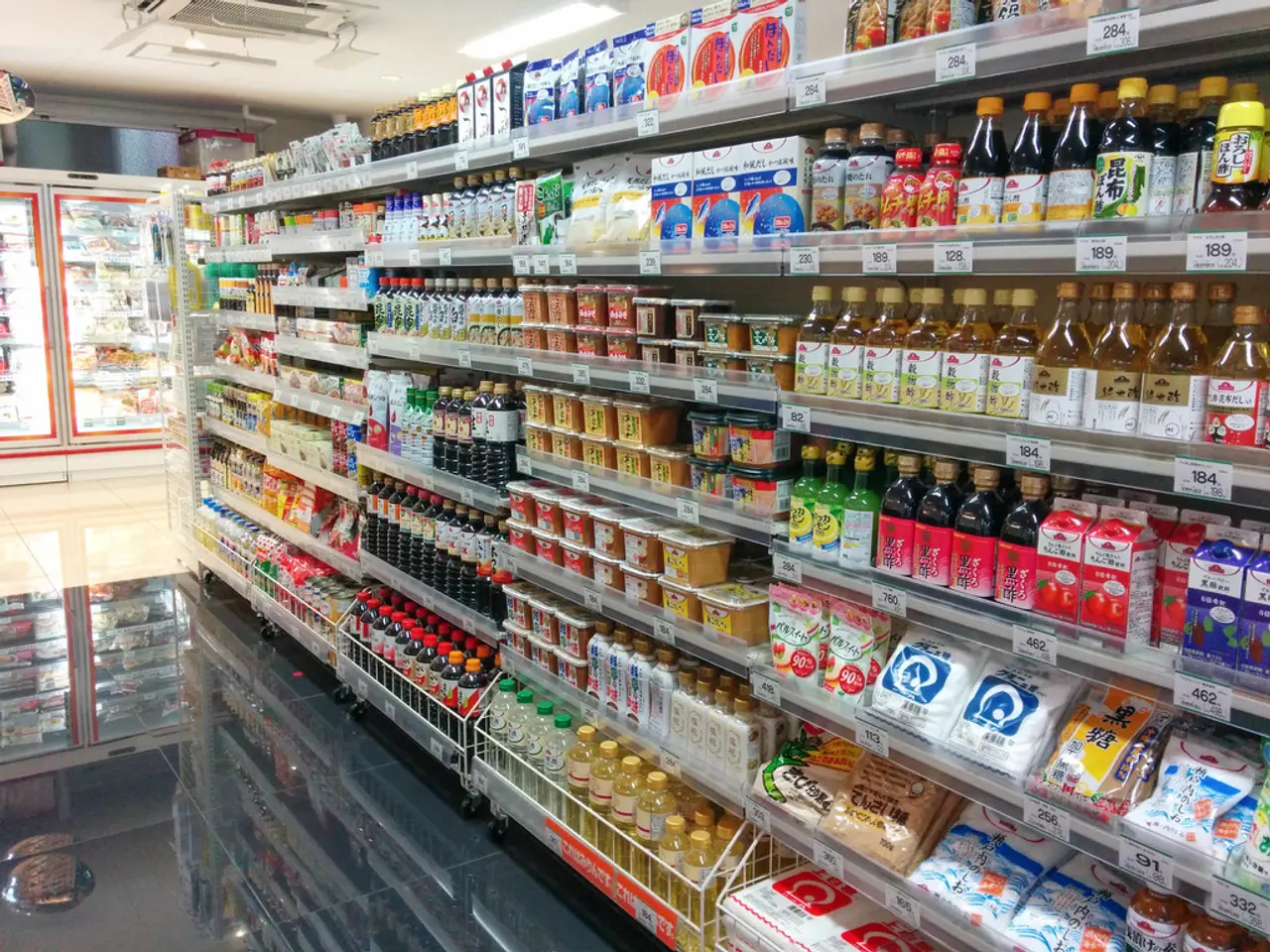Kraft Heinz's self-assessment by Buffett is deemed excessively optimistic once more.
In a significant shift for the food industry, Kraft Heinz has announced that it will explore strategic options, including a potential corporate split, as the company grapples with declining sales and the impact of changing consumer preferences.
The American food giant, known for iconic brands such as Kraft Macaroni & Cheese and Heinz Ketchup, has been facing challenges due to the trend towards healthier eating and U.S. President Donald Trump's trade policies. These struggles have led to a net loss of US$8 billion in the first half of fiscal 2025, primarily driven by a US$9.3 billion non-cash impairment charge.
Organic net sales fell by 2% during this period, impacted by inflation, tariffs, and a shift in consumer tastes towards healthier options, which have reduced demand for some of Kraft Heinz's branded products. The company's share price and market value have also taken a hit, leading to a widening gap between its book and market value.
Warren Buffett's Berkshire Hathaway, which holds over 27% of Kraft Heinz stock, has acknowledged that the investment has underperformed expectations. Berkshire wrote off $3 billion on the Kraft Heinz stock package in 2019 and is now writing off an additional $3.76 billion on its stake. This write-off caused Berkshire's net profit to plummet by 59% to $12.37 billion in the second quarter.
Buffett admitted that Berkshire overpaid for the acquisition and underestimated the challenges posed by changing retailer dynamics and the rise of private label brands. Berkshire's representatives resigned from Kraft Heinz's board earlier in 2025, shortly before the company announced it was exploring strategic options.
One of these options includes a possible spin-off of a large portion of Kraft Heinz's business, estimated at $20 billion, which could potentially separate the Kraft brand from the rest of the company. This move is aimed at unlocking shareholder value and adapting to the changing market landscape.
Despite these challenges, Berkshire still considers its stake in Kraft Heinz a long-term investment. The company, driven by Buffett, had driven the merger of Kraft Foods and H.J. Heinz in 2015, hoping to create a powerhouse in the food industry.
Meanwhile, the operating profit from Berkshire's own businesses fell by 4% to $11.16 billion in the second quarter, primarily due to declining premiums in the insurance business. The company continues to invest in various sectors, including energy, retail, and services, demonstrating its resilience amidst market uncertainties.
As Kraft Heinz navigates these challenges, the food industry will closely watch its strategic decisions and their impact on the company's future.
The Commission, in light of Kraft Heinz's financial struggles, might consider investing in the protection of workers from the risks related to exposure to ionizing radiation in the food industry, as it seeks to provide better safety standards for businesses.
Warren Buffett, despite Berkshire Hathaway's significant loss from its investment in Kraft Heinz, could potentially divert funds towards financing various sectors, including the food industry, to maintain a diverse portfolio.




